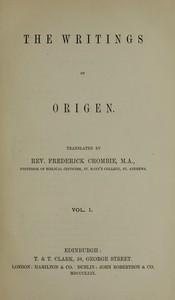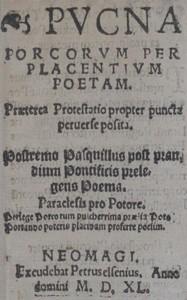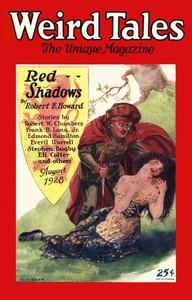Read this ebook for free! No credit card needed, absolutely nothing to pay.
Words: 220653 in 219 pages
This is an ebook sharing website. You can read the uploaded ebooks for free here. No credit cards needed, nothing to pay. If you want to own a digital copy of the ebook, or want to read offline with your favorite ebook-reader, then you can choose to buy and download the ebook.
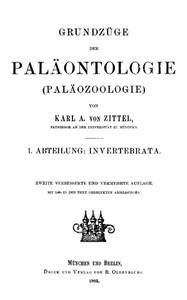

: Grundzüge der Paläontologie (Paläozoologie). 1. Abteilung: Invertebrata. by Zittel Karl Alfred Von - Paleontology
Introduction--Some Movements of Thought in the Nineteenth Century Which Have Affected Christian Beliefs 1
SOME CHRISTIAN CONVICTIONS
INTRODUCTION
SOME MOVEMENTS OF THOUGHT IN THE NINETEENTH CENTURY WHICH HAVE AFFECTED CHRISTIAN BELIEFS
When King Solomon's Temple was a-building, we are told that the stone was made ready at the quarry, "and there was neither hammer nor axe nor any tool of iron heard in the house." The structures of intellectual beliefs which Christians have reared in the various centuries to house their religious faith have been built, for the most part, out of materials they found already prepared by other movements of the human mind. It has been so in our own day, and a brief glance at some of the quarries and the blocks they have yielded may help us to understand the construction of the forms of Christian convictions as they appear in many minds. Some of the quarries named have been worked for more than a century; but they were rich to begin with, and they have not yet been exhausted. Some will not seem distinctive veins of rock, but new openings into the old bed. Many blocks in their present form cannot be certainly assigned to a specific quarry; they no longer bear an identifying mark. Nor can we hope to mention more than a very few of the principal sources whence the materials have been taken. The plan of the temple and the arrangement of the stones are the work of the Spirit of the Christian Faith, which always erects a dwelling of its own out of the thought of each age.
Something far more deeply interfused Whose dwelling is the light of setting suns, And the round ocean, and the living air, And the blue sky, and in the mind of man: A motion and a spirit, that impels All thinking things, all objects of all thought, And rolls through all things.
It baptized men into a new sense of wonder; everything became for them miraculous, instinct with God. It quickened the imagination, and sent writers, like Sir Walter Scott, to make the past live again on the pages of historical novels. Sights and sounds became symbols of an inner Reality: nature was to Emerson "an everlasting hint"; and to Carlyle, who never tires of repeating that "the Highest cannot be spoken in words," all visible things were emblems, the universe and man symbols of the ineffable God.
To the output of this quarry we may attribute the following elements in the structure of our present Christian thought:
That religion is something more and deeper than belief and conduct, that it is an experience of man's whole nature, and consists largely in feelings and intuitions which we can but imperfectly rationalize and express. George Eliot's Adam Bede is a typical instance of this movement, when he says: "I look at it as if the doctrines was like finding names for your feelings."
It found itself at odds with current theological opinions at a number of points. Preachers of religion were emphasizing the total depravity of man; and humanitarians brought to the fore the humanity of Jesus, and bade them see the possibilities of every man in Christ. They were teaching the endless torment of the impenitent wicked in hell; and with its new conceptions of the proper treatment of criminals by human justice, it inveighed against so barbarous a view of God. They proclaimed an interpretation of Calvary that made Christ's death the expiation of man's sin and the reconciliation of an offended Deity; in McLeod Campbell in Scotland and Horace Bushnell in New England, the Atonement was restated, in forms that did not revolt men's consciences, as the vicarious penitence of the one sensitive Conscience which creates a new moral world, or as the unveiling of the suffering heart of God, who bears His children's sins, as Jesus bore His brethren's transgressions on the cross. They were insisting that the Bible was throughout the Word of God, and that the commands to slaughter Israel's enemies attributed to Him, and the prayers for vengeance uttered by vindictive psalmists, were true revelations of His mind; and Humanitarianism refused to worship in the heavens a character less good than it was trying to produce in men on earth. These men of sensitive conscience did for our generation what the Greek philosophers of the Fifth Century B.C. did for theirs--they made the thought of God moral: "God is never in any way unrighteous--He is perfect righteousness; and he of us who is the most righteous is most like Him" .
From this movement of thought our chief gains have been:
A view of God as good as the best of men; and that means a God as good as Jesus of Nazareth. Older theologians talked much of God's decrees; we speak oftener of His character.
Free books android app tbrJar TBR JAR Read Free books online gutenberg
More posts by @FreeBooks

: Be young again! by Leinster Murray Stevens Lawrence Sterne Illustrator - Science fiction; Swindlers and swindling Fiction; Alchemy Fiction
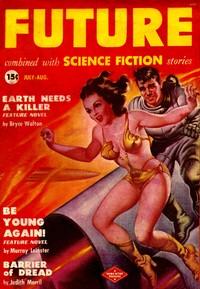

: The writings of Origen Vol. 1 (of 2) by Origen Africanus Sextus Julius Contributor Crombie Frederick Translator - Theology History Early Church ca. 30-600; Celsus (Platonic philosopher) active 180; Apologetics History Early church ca. 30-600
